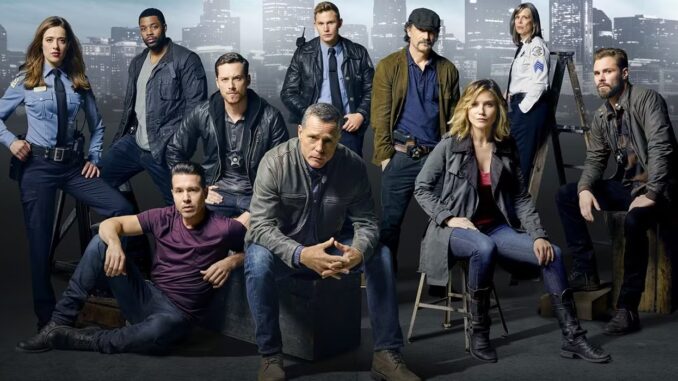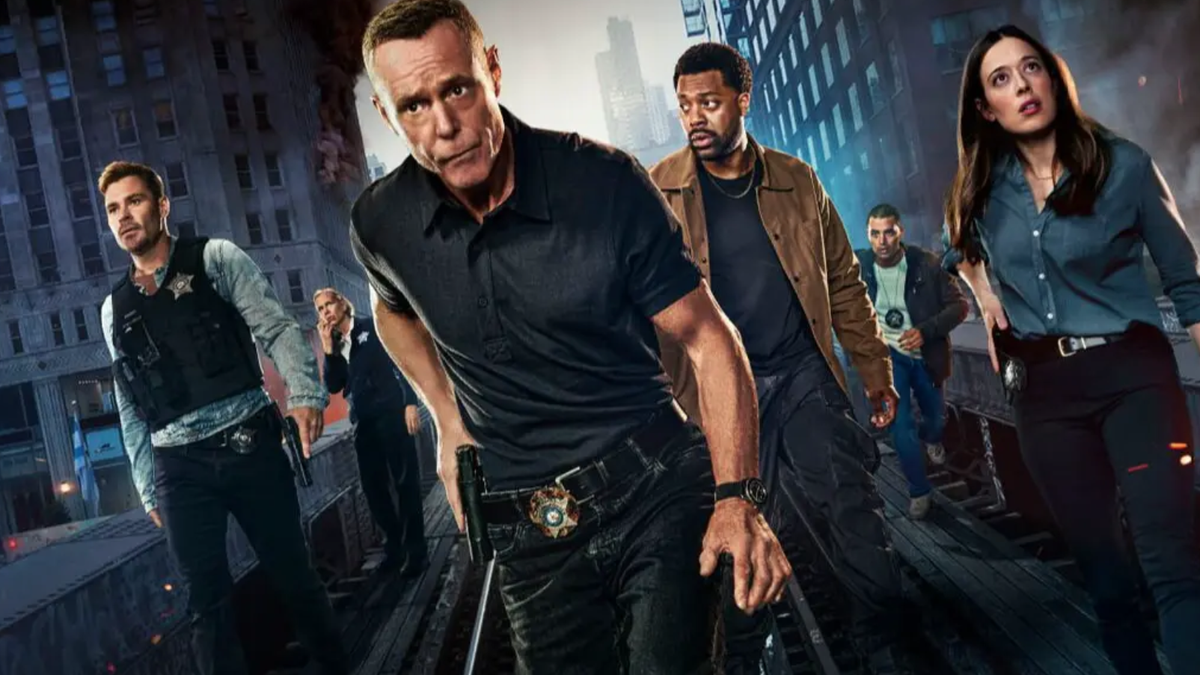
When you think of Chicago P.D., you think grit, tension, and moral gray zones. But Season 13 takes those themes and cranks them up to a whole new level. It’s messy. It’s dark. And, honestly, it might just be the boldest season yet. For fans, this season wasn’t just another chapter in the One Chicago universe—it was a line in the sand, a signal that the show is unafraid to evolve, no matter how uncomfortable it gets.
So, let’s dive deep into Chicago PD Season 13: what worked, what didn’t, and why the Intelligence Unit’s worst behavior might actually be the best thing to ever happen to the show.
Season 13 at a Glance
Every season of Chicago P.D. tests the limits of morality, but Season 13 stands out because it doesn’t just flirt with corruption—it embraces it. This time, the Intelligence Unit’s actions made fans question whether the team had lost its way completely.
The season is raw and unapologetic, and while it left some viewers frustrated, others saw it as a necessary evolution.
Why “Intelligence at Its Worst” Isn’t an Insult
On the surface, calling the Intelligence Unit “at its worst” sounds harsh. But in storytelling, “the worst” often means the most compelling. Season 13 explores how good people make bad choices, how power can corrupt, and how loyalty sometimes leads to destructive decisions.
It’s uncomfortable, yes. But isn’t that the point of good drama?
Voight: The Man Who Can’t Escape His Own Shadow
Sergeant Hank Voight has always been the moral compass—or lack thereof—of Chicago P.D.. Season 13 shows us a Voight who is unraveling. He’s older, more desperate, and still clinging to his old-school ways of running the unit. But the world around him has changed.
His tactics, once seen as effective if brutal, now spark conflict within the team itself. It’s clear Voight is facing an identity crisis: adapt to a new era of policing or go down swinging.
Upton’s Struggle: The Breaking Point
Detective Hailey Upton has always wrestled with her loyalty to Voight and her own moral compass. This season pushed her to the breaking point. Her inner conflict mirrors the show’s larger theme: Can the Intelligence Unit continue operating the way it always has, or will it self-destruct from within?
Upton’s emotional unraveling is one of the highlights of the season, giving the audience someone to root for even in the chaos.
Atwater’s Perspective: A Voice of Reason
Kevin Atwater remains one of the most grounded characters in the series. In Season 13, he once again becomes the voice of reason, challenging the questionable decisions made by his team. His perspective is crucial—not just for balancing the narrative, but for reminding us that there is a better way forward.
Atwater’s storyline may not be as explosive as others, but his quiet strength anchors the team.
New Blood in the Intelligence Unit
Season 13 also introduced fresh faces and shifting dynamics within the team. These newcomers highlight the generational divide within Intelligence: the old guard clinging to their methods versus the new generation demanding accountability.
This clash is exactly what keeps the show alive after more than a decade on air.
The Season’s Darkest Storylines

Let’s be real—this season wasn’t easy to watch. Cases got darker, choices more questionable, and consequences harsher. From brutal cover-ups to risky undercover work, the Intelligence Unit seemed to spiral further into moral ambiguity.
But this darkness wasn’t gratuitous—it served a purpose. It forced fans to ask hard questions: Can we still root for these characters? Should we?
Intelligence’s Downfall: A Set-Up for a Rebirth
If Season 13 felt like the team at its lowest, that’s because it was meant to. The writers are clearly setting up a rebirth—a new era where the Intelligence Unit has to confront its sins and reinvent itself.
In storytelling, the lowest point often comes before redemption. That’s exactly where we are now.
Why Fans Are Divided
Some fans loved the gritty direction of Season 13, while others felt betrayed by the Intelligence Unit’s choices. This split reaction isn’t a bad thing—it shows the writers aren’t playing it safe. They’re willing to take risks, even if it means alienating part of the fanbase.
After all, safe storytelling rarely makes history.
The Bigger Picture: One Chicago’s Evolution
Season 13 of Chicago P.D. isn’t just about one unit—it’s about the evolution of the entire One Chicago universe. With Chicago Fire and Chicago Med also exploring darker and more complex arcs, it’s clear the franchise is leaning into realism and moral complexity more than ever before.
Cinematography and Tone: Grit Turned Up
Visually, Season 13 leaned into darker tones and grittier cinematography. Chicago felt colder, harsher, more unforgiving—a perfect reflection of the Intelligence Unit’s downward spiral. The atmosphere wasn’t just a backdrop; it was a character in itself.
Standout Performances
This season gave the cast some of their best material yet:
-
Jason Beghe (Voight) delivered a layered performance of a man torn between past and future.
-
Tracy Spiridakos (Upton) brought raw emotion that left fans shaken.
-
LaRoyce Hawkins (Atwater) quietly stole scenes with his steady presence.
When the writing gave them the room, the actors carried the weight beautifully.
The Message Behind the Madness
Underneath the chaos, Season 13 delivers a powerful message: policing is evolving, and the Intelligence Unit must evolve too. The “worst” we see isn’t just drama—it’s the painful process of tearing down the old to make room for the new.
Looking Ahead: What Season 14 Might Bring
Season 13 ends with Intelligence fractured, bruised, and questioned like never before. But that’s exactly why Season 14 could be groundbreaking. We may see:
-
Voight either forced to adapt or step aside.
-
Upton stepping into a leadership role.
-
Atwater’s influence finally shaping the unit.
-
A complete restructuring of Intelligence itself.
Final Thoughts
Chicago PD Season 13 wasn’t easy to watch. It was brutal, divisive, and messy. But that’s what makes it unforgettable. By pushing Intelligence to its limits and showing them at their worst, the show has set the stage for a rebirth.
This season didn’t just tell a story—it marked the end of an era and the beginning of a new one. For longtime fans, it’s a reminder that even when things look bleak, Chicago P.D. still has plenty of fire left in its tank.
FAQs
1. Why do fans say Season 13 shows Intelligence at its worst?
Because the unit crossed ethical and legal lines more than ever before, sparking debate about whether they’ve lost their way.
2. Is Voight still the leader of Intelligence in Season 13?
Yes, but his leadership is heavily challenged, and his future role is uncertain.
3. Which character had the biggest arc in Season 13?
Hailey Upton’s emotional struggle was one of the season’s standout storylines.
4. Was Season 13 received well by fans?
Reactions were split—some loved the dark direction, while others felt it went too far.
5. Does Season 13 set up Season 14?
Absolutely. The chaos and downfall in Season 13 strongly hint at a reinvention in Season 14.
